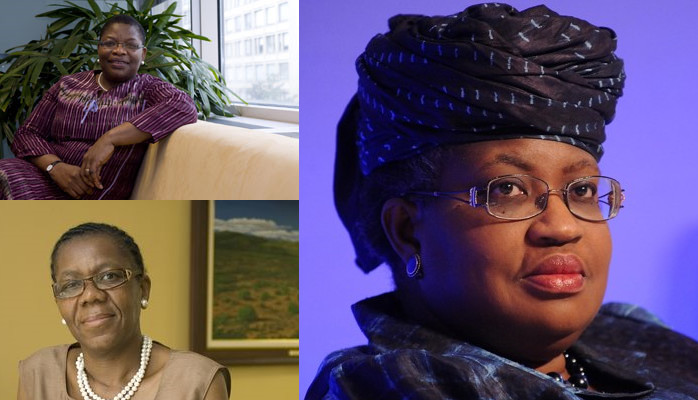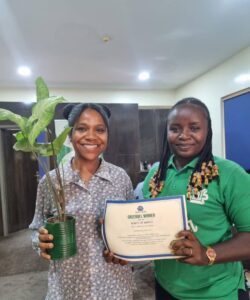Women in Business: Top Myths Busted
One would think that as women rise to the top in all the various sectors that control the world economy, seeing a woman in a lead role won’t be a surprise anymore. I’m sure it’s not easy getting there. Ngozi Okonjo-Iweala, who holds the record for being the first female World Bank Director and Nigeria’s Foreign Affairs and Finance Minister, must have many a tale to tell us about her rise. Justice Aloma Mariam Mukhtar who has been many firsts: (first female lawyer from Northern Nigeria, first female judge of the High Court in Kano State judiciary, the first female justice of the Court of Appeal of Nigeria, the first female justice of the Supreme Court of Nigeria and the first female Chief Justice of Nigeria) we are sure has many battle scars to show for her triumphs.
I’ve often wondered what could be keeping our women from climbing the corporate and political ladder? What can be done to inspire the next set of women leaders to step up?
I feel we can start by busting the myths perpetrated to prevent this climb, especially on the African continent…..
Let’s tackle five of them, one after the other together. Let’s start with the very first:
Top Myth #1: Women Leaders – It’s a Western thing
Women began voicing out and taking leadership roles in Africa long before there were records to prove so. Many of the tribes on our continent have folk tales of how women took up the mantle of leadership and helped their people – we had warriors like Queen Idia of the Benin kingdom and Queen Amina of Zaria, royal consorts like Queen Hatshepsut of Egypt, riot leaders like Winnie Mandela to name a few. So when did it become a foreign thing to see a woman at the forefront of prominent companies and issues? Did we think this happened overnight here in Africa or is a new phenomenon ? Thankfully we have several women who prove this myth wrong:

Photo Credit: Bella Naija
Obiageli Ezekwesili, or Madam Due Process as she is fondly called, stands regularly for women’s rights, and issues concerning women, children and education in Nigeria. Trained as a Chartered Accountant, she co-founded Transparency International, a global anti-corruption body. She has served as Nigeria’s Minister of Solid Minerals and later Education. She has also become an activist for the “Bring back our girls” campaign in solidarity of the 219 missing Chibok girls of Nigeria. As the Coordinator of the BringBackOurGirls Group, she insists, even after 365 days today, that they are still being held captive, and has organized a week-long campaign to mark the one year anniversary, and demand that the government do something to help the girls come back home.

Photo Credit: Business day Live
Dalphne Mashile-Nkosi is a gigantic symbol that women cannot be stopped. In a sector dominated by white men, she blazes the trail for other women by founding and running her own billion dollar manganese mining company, Kalagadi Manganese. She is very conscious of her commitment to social empowerment and environmental responsibility. She has set herself a target that all her companies will have a staff comprising of at least 50% women – she currently employs about 3,000 people, 36% of which are women. In 2014, she was awarded CEO of the Year, at the annual Africa Chief Executive Officer (CEO) Forum, in Geneva, Switzerland, where she encouraged all women to “take their rightful places around the boardroom tables of Africa“.
Photo Credit: Connect Nigeria
Ngozi Okonjo-Iweala, moved from being the 87th most powerful woman in the world in 2011, to the 44th in 2014. She has undertaken several programs aimed at increasing Nigeria’s GDP, transparency and debt profile worldwide.
So, how do we keep this myth busted?
Simple. We women need to keep breaking the glass ceiling set upon us, by being innovative, and by reinventing ourselves regularly, that way we can improve on what we do or where we find ourselves. After all, we have been given the responsibility to nurture and shape the future, and indeed the nation we hold dear. Our men are not left out either. We need their co-operation in defying this myth by celebrating every woman around you and regularly. Appreciate the richness, creativity and progress to your lives that women contribute to. I believe – and I have seen it happen time and again that helping a woman is helping her family, her community and indeed her nation. Reach out to every woman aiming for the top, with a helping hand.
So what do you think? Can women get rid of this myth?







